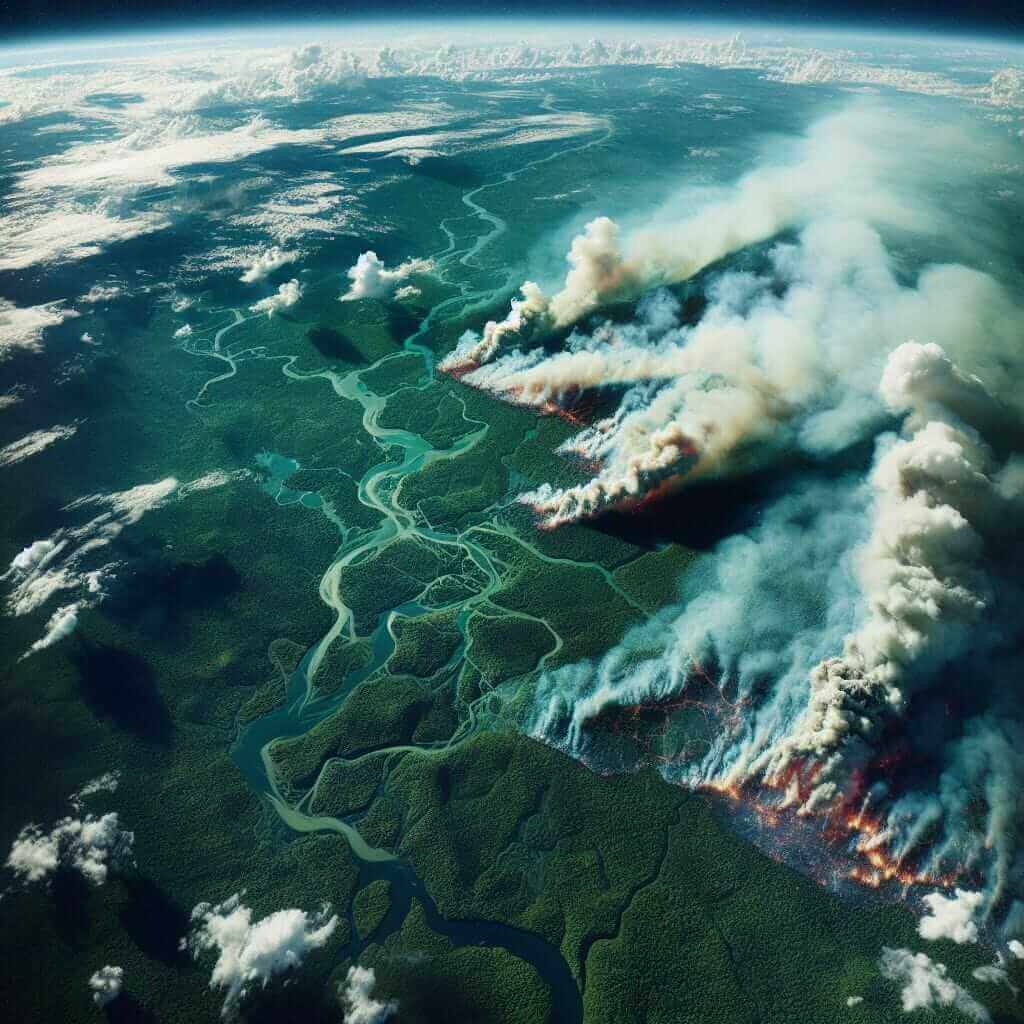Reading tests in the IELTS can be challenging, especially with the inclusion of increasingly relevant and complex topics such as climate change. Over recent years, topics related to climate change and its effects on natural resources have frequently appeared in IELTS Reading sections. Given the ongoing global discussion on climate change, it is quite possible that this theme will continue to feature in future exams. Therefore, it’s essential to practice reading passages and questions on this topic to enhance comprehension and answer correctly.
Detailed Practice Reading Passage and Questions
Practice Reading Passage on Climate Change and Natural Resources
Title: Climate Change and Its Impact on Natural Resources
Climate change is a significant global issue that affects various aspects of our environment, including the availability of natural resources. One of the most noticeable impacts of climate change is on water resources. Increasing temperatures and changing precipitation patterns lead to the melting of glaciers, altering river flows, and impacting groundwater recharge rates. For instance, in regions like the Himalayas, glacier meltwater significantly contributes to water flow in rivers, and climate-induced changes can threaten water availability for millions of people.
Furthermore, climate change is reducing the availability of arable land. Rising temperatures and changing precipitation patterns contribute to soil degradation, desertification, and the reduction of crop yields. Regions like Sub-Saharan Africa are particularly vulnerable as agriculture in these areas heavily depends on rainfall. Consequently, food security is a growing concern in the face of climate change.
Forest resources are also profoundly affected by climate change. Altered weather patterns and increased frequency of extreme events like wildfires and storms can damage forest ecosystems. In the Amazon rainforest, for example, increased droughts have led to severe forest fires, diminishing carbon absorption capabilities and threatening biodiversity.
<
Lastly, marine resources are experiencing substantial changes due to warming oceans and acidification. These factors affect marine biodiversity, with consequences for fisheries and the communities that rely on them. Coral bleaching events, which disrupt marine ecosystems, are becoming more frequent and severe due to rising sea temperatures.
Questions Based on the Passage
1. Multiple Choice Questions:
-
According to the passage, what is one major impact of climate change on water resources?
A. Increased rainfall in all regions
B. Reduced river flows due to glacier melting
C. Higher groundwater levels internationally
D. Enhanced water conservation efforts globally -
In which region is agriculture most vulnerable to climate change, according to the passage?
A. North America
B. Sub-Saharan Africa
C. Western Europe
D. East Asia
2. Identifying Information (True/False/Not Given):
- Climate change has no impact on the availability of marine resources.
- Forest fires in the Amazon have decreased due to higher precipitation levels.
- Soil degradation and desertification are consequences of climate change affecting arable land.
3. Matching Headings:
Match the correct headings to the appropriate paragraphs:
A. The Effect of Climate Change on Forest Resources
B. The Impact of Climate Change on Arable Land
C. Climate Change and Water Resource Availability
D. Climate Change’s Effect on Marine Resources
Paragraph 1: __
Paragraph 2: __
Paragraph 3: __
Paragraph 4: __
Answer Keys and Explanations
1. Multiple Choice Answers:
-
B. Reduced river flows due to glacier melting
- Explanation: The passage specifically mentions how “melting glaciers” affect river flows.
-
B. Sub-Saharan Africa
- Explanation: The text points out that “agriculture in these areas heavily depends on rainfall,” making them more vulnerable.
2. Identifying Information (True/False/Not Given) Answers:
-
False
- Explanation: The passage discusses adverse effects on marine resources.
-
False
- Explanation: The text mentions increased droughts leading to forest fires, not higher precipitation.
-
True
- Explanation: The passage indicates that these are impacts of climate change on arable land.
3. Matching Headings Answers:
Paragraph 1: C. Climate Change and Water Resource Availability
Paragraph 2: B. The Impact of Climate Change on Arable Land
Paragraph 3: A. The Effect of Climate Change on Forest Resources
Paragraph 4: D. Climate Change’s Effect on Marine Resources
Common Mistakes and Tips
One frequent issue candidates face is misinterpreting “Not Given” questions. Ensure you understand whether the information is explicitly stated in the passage. Also, practice skimming and scanning techniques to quickly locate key information and details within the text.
Vocabulary
Here are some challenging words from the passage:
- Arable (adj) /ˈærəbl/: capable of producing crops.
- Precipitation (noun) /prɪˌsɪpɪˈteɪʃən/: rain, snow, sleet, or hail that falls to or condenses on the ground.
- Desertification (noun) /dɪˌzɜːtəfɪˈkeɪʃən/: the process by which fertile land becomes desert.
- Biodiversity (noun) /ˌbaɪoʊdaɪˈvɜːrsɪti/: the variety of life in the world or in a particular habitat or ecosystem.
Grammar Focus
Pay attention to complex sentences & conditional sentences. For example:
- “If the trends continue, food security could become a more significant issue.”
Understand the use of “if” for conditional situations and how they affect the meaning of sentences in IELTS reading passages.
Advice for Achieving a High Reading Score
- Regular Practice: Regularly practice with a variety of topics to improve overall reading comprehension and speed.
- Expand Vocabulary: Build a strong vocabulary database to easily understand complex texts.
- Practice Different Question Types: Familiarize yourself with all possible question types to develop effective strategies for each.
- Time Management: Practice managing time efficiently to complete all questions within the given time frame.
By incorporating these strategies and regularly practicing, you’ll enhance your reading skills, thereby achieving a higher score in the IELTS Reading section. For further reading and practice materials related to climate change impacts, you can check: